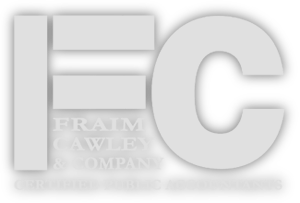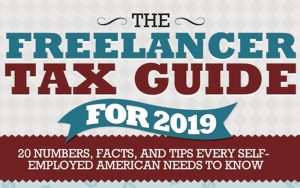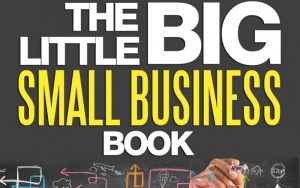Every year, I have (nearly) countless conversations with clients about how they can reduce their tax bills. And, obviously, that is a big part of the expertise we provide and the service for which they pay us. When we meet, at least half of the conversation centers around legal tax maneuvers they can make to reduce their tax liability.
So why does the title say the opposite – that you should focus on having a big tax bill?
The problem arises when clients become so hyper-focused on tax savings that they lose sight of the bigger picture. They will look for any possible move they can make, sometimes desperately, to knock down their tax bill.
The intent behind that is perfectly understandable. For higher income earners, qualified business expenses can save them nearly 50 cents on the dollar on their tax bill. That’s huge.
But making decisions with tax ramifications as the primary driver is somewhat missing the point, isn’t it? We aren’t in business to save on taxes, we’re in business to make more money.
Sometimes, we have to reemphasize that objective to clients and reframe the discussion.
“Will this save me on my tax bill?” really isn’t the question, when considering spending money on something. The answer to that is almost always “yes”; it’s just a matter of how much.
The real question that should be considered is the same one that should be asked before you invest in anything: “What sort of return-on-investment (ROI) will this produce?” For entrepreneurs, this would be “How much benefit does this provide for my business?”
Let’s look at it this way: assume you’re at a 30% marginal tax rate (the rate at which your last/highest dollar of income is taxed). So, if you buy a truck for $20,000 and deduct the entire thing all at once as a business expense, that knocks $6,000 off of your tax bill – the truck effectively only costing you $14,000.
Awesome – if you needed the truck.
So what benefit did the truck provide you? What utility did you get from it? What money did it make you?
If the answer is that it provided minimal value – no real ROI – then why was it purchased? Ultimately, it still cost you money.
This principle can, and should, be applied to any business expenditure. And weirdly, we already think this way when taxes are not involved. If you’re spending $10,000 on marketing and advertising, you always want to know that you’re making (including indirect benefits*) at least $10,000 from those expenses.
And to be clear: none of this is to say that the tax planning side is not essential. It absolutely is. Proper planning can dramatically decrease the effective cost of many expenditures – freeing up cash flow for other things and reinvestment in your company. It can, in essence, make you money.
But it should not be the main driver behind the decisions. You need to have overall business factors be the primary consideration and then we’ll figure out the tax side.
If you do it that way, then you win. If you don’t, then you’ll end up with a bunch of useless expenses/assets, a low tax bill, and the subpar business growth and performance to match.
We should all aspire to have absolutely massive tax bills, because that means our businesses and incomes are proportionately big and healthy. We always want to reduce taxes as much as is reasonably possible, but we want to guard against becoming inordinately preoccupied with them.
*Note: Especially as marketing was used as the example, I want to emphasize that indirect benefits should be taken into account. A marketing push may result in a breakeven (or even a loss) on the front end, but that does not mean it was a failure. The residual benefits of having increased brand value, connections, leads, etc. can be huge and must be factored into the equation. The same idea is true for any other business expenses/investments: we need to look at the totality of the benefit, not just the immediate payoff.
This article originally appeared on Influencive, where I am a contributor.
Any accounting, business, or tax advice contained in this communication, including attachments and enclosures, is not intended as a thorough, in-depth analysis of specific issues, nor a substitute for a formal opinion, nor is it sufficient to avoid tax-related penalties.




